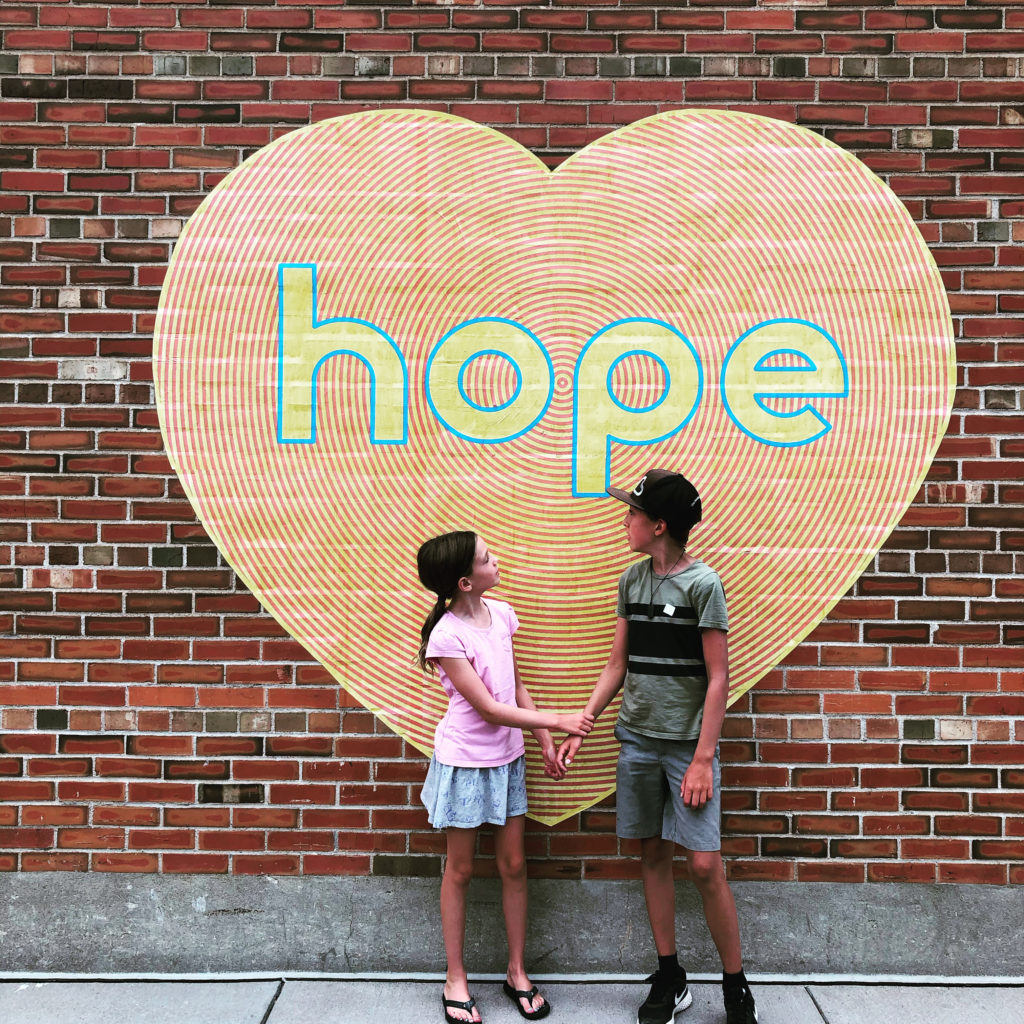
As a couples therapist and coach, sometimes I feel like I’m on the frontlines of a pandemic of individualism–especially when I’m facing how challenging it is for couples to think in a more complex, systemic way about their relationship. It is so hard for people to really think about, consider, and empathize with their partner, and do what is best for their relationship–not just one’s self in the moment. It is like even that idea confronts the culture of individualism that we all marinade in: that we are separate and our individual preferences and attitudes hold more weight than the needs of the group—in this case the group is the couple.
How a couple functions has a huge role in how our society is shaped. Think about it: if a couple cannot figure out how to be fair, sensitive, and collaborative (core principles of a secure adult relationship outlined by one of my mentor’s, Stan Tatkin), or how to advocate for one’s self, the other, and their relationship at the same time (some of the skills we teach at The Relationship School), then how can any group that extends from them have a chance of figuring that out?
A lot of the time I am deeply inspired by the courage, kindness, empathy, and love between two people–even while they are arguing (when it is most essential to pay attention in this way). But other days I am deeply concerned about the unwillingness in a couple to listen with curiosity and care, to slow down and wonder about what the other person is navigating, or to just humble themselves to the fact that none of us are born good at this. We all need to learn how to really handle other people well at some point (whether that be partners or kids, friends, and family), but many never do.
Think about it: a couple takes a (hopefully) mutual leadership role in their relationship, and if they have children, then they also lead together in their family life. How that couple leads–together–impacts everyone around them. Especially their kids. Our kids in particular get the download of our shared leadership (or lack thereof) in action. Many couples struggle to genuinely collaborate, to take the time to work out fair and good solutions for everyone, and end up in a pattern of ruts that they survive—but not grow and develop—inside of.
The painful truth is that many couples are mired in avoidance, blame, resentments, accusing, sarcasm, jabs, low blows, enmeshed boundaries, and behaving in ways that serve self protection and preservation over everything else.
It is like we just don’t believe that we could get somewhere better sooner, a place that is fair and good for both of us, by working together and addressing the issues we face with care. Care looks like being interested and curious about you even when I’m upset. It looks like me offering you what I wish you would offer me, and not waiting for you to do it first. It looks like me being willing to think about you as I speak, and show you that even under stress that I can consider you, your feelings, and your humanness. And in an adult partnership, this kind of care should go both ways.
I’m not going to lie, this is hard to do. It’s hard for me to do, as my husband could attest, and we’ve been studying psychology, relationships, contemplative practices, and working on ourselves for decades! I write and study these principles for my own benefit as well. But to NOT do it, to not combat our tendency to self orient under stress, is a sad, lonely, and stressful way to live. I just can’t see another way forward without us remembering that we need each other—that we need to consider how the person we depend on most is feeling, even when we feel hurt or upset. Often, the way we handle our hurt or upset puts more stress on the relationship, instead of the relationship being a container for managing, processing, and healing our upset.
It is hard to be generous when we feel misunderstood or hurt. It is hard to be vulnerable when we feel slighted. But if it happens nowhere else in your life, make your partnership the one place that you practice considering each other even when you are stressed, upset, and overwhelmed. You can argue, hash things out, disagree, feel hurt, angry, scared, sad, and more and STILL look out for the well being of your partner and your relationship. If you both do this for each other, you will be amazed at how much energy, capacity, and resilience this provides for facing the challenges that life brings us every day.
In yoga, we practice breathing steadily even through physical, mental, and emotional intensity, staying connected from deep within even at our edge (psychologically or physically), relaxing while engaging, and work very actively with all the paradoxes that present themselves in a well formed yoga practice. Relationship with our partners is so similar, where we work on integrating our own experience with theirs while not forgoing ours entirely, and we integrate our vision for ourselves, each other, and the relationship. This is true inclusivity. It isn’t easy, there is no perfect way to do it, but it is the shared intention and practicing that matters.
You have the chance to lead the way, for everyone that comes after you. With a clear commitment, intention, and ongoing practice, it is possible to care for yourself, your partner, and the relationship, no matter what you are facing together. You cannot lose if you both do this. And this understanding of how to lead between two people deeply informs how to do this beyond, which our families, communities, and society at large are so desperately in need of. And why not go for it? I promise, we have nothing to lose.

